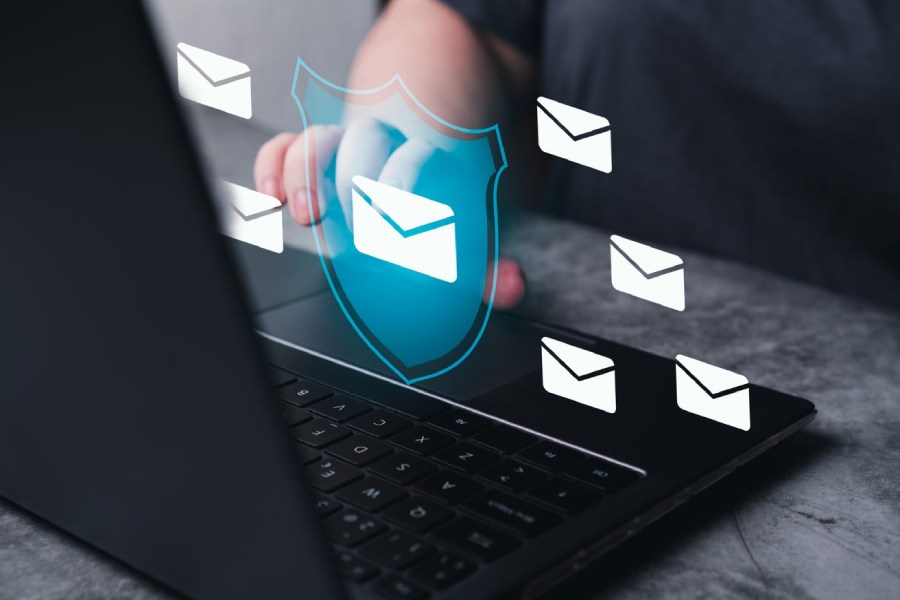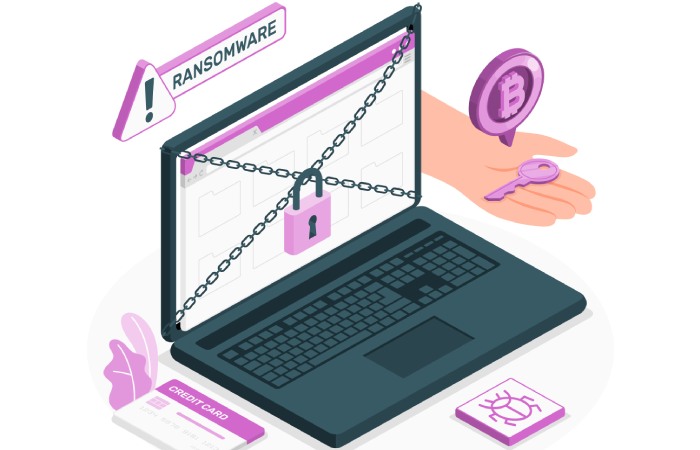Cybercrimes are increasing quicker than the tech giants’ default email security offerings, which are in danger of becoming obsolete. As a result, email security requirements are increasing suddenly, posing new challenges for small businesses in 2023. This article explains the challenges and explores ways to overcome them.
Besides forming the backbone of the economy, SMBs and SMEs are increasingly becoming prime targets of cybercriminals looking to steal sensitive information and financial data. Hackers usually employ emails as the primary attack vectors because they are the initial contact points for accessing an organization’s network. Technological improvements have resulted in a corresponding rise in cybercrimes and email attacks. Let’s examine why businesses should focus on email security to mitigate these risks.
When and how did the Need for Email Security Surge?
In early 2021, Microsoft announced that Chinese cybercriminals had hacked their servers, making all its users vulnerable until the company released a patch. Social media and cybersecurity news circles were abuzz with news of organizations of all sizes struggling to find out if they had been infiltrated.
More than 200 ransomware attacks followed, leading to small businesses losing business worth millions of dollars. All the fingers pointed toward strengthening the email security portfolio of organizations.
Organizations and businesses had built-in security features to rely on. Still, they had to take care of themselves because the technology stack they trusted was the reason for the security breaches.
The Underlying Problems Small Businesses Face in Email Security.
SMBs and SMEs depend on software organizations and their products and services for their cybersecurity requirements. However, they suffer when these organizations cannot provide adequate security, making them ill-equipped to counter the latest wave of cybercriminals, organized hacker groups, and malicious threat actors.
The significant drawback is that today’s tech stack was developed before the surge in cybercrimes. Generally, a network system should have essential software or default security features to counter cyber threats. But prominent market players dominated the email security space, not by offering high-quality security, but by leaving it at the mercy of the cybersecurity market.
SMBs and SMEs are also to blame because they had insufficient budgets to hire experts and formulate defensive measures to thwart email threats. So, businesses should acknowledge the challenge and work out ways to protect themselves.
Larger corporations like Microsoft and Google have taken corrective steps and offer top-of-the-line email security. For example, MS Defender for Office 365 detects and blocks nearly 40 million BEC and over 100 million phishing emails monthly.
Besides, Google strengthened its email offerings by acquiring Mandiant and implementing cybersecurity and email security for its products.
Cyber Insurance – The Other Side of the Coin
Organizations are adopting new measures to improve email security. For example, Microsoft has changed the default settings of five applications that block all VBA macros from the internet. As cyber-attacks are increasingly becoming more advanced and more severe, organizations are looking up to cyber insurance to provide the necessary relief. As a result, cyber insurance demands have surged, pressurizing insurance providers to cater to such requests. Therefore, the instances of cyber insurance policies have increased.
Besides, small businesses should realize that specific cyber threats like ransomware are increasingly risky and expensive. Therefore, businesses must incur additional expenses to cover these threats.
Market reports show that the average premium for cyber insurance has risen by 28% in the first quarter of 2022 vis-a-vis the fourth quarter of 2021. Therefore, small business entities without the financial or technical resources to mitigate the threats of significant cyber attacks do not have any choice but to bear the increased costs. Otherwise, they must pay the price. So, what options are left for small businesses for cost-effective and advanced email security?
What can Small Businesses do to Enhance Email Security?
With cyber insurance proving an expensive option, small businesses can take these steps to enhance email security and protect themselves from email threats and cyberattacks.
- Devise a comprehensive cybersecurity strategy: The ideal way to enhance email security threats is to formulate a comprehensive cybersecurity strategy. It includes establishing security protocols and equipping the organization’s staff to effectively identify and respond to potential hazards. It can provide an excellent foundation of protection for any business.
- Implement Robust Email Defense Strategy: A robust email defense strategy enhances email security. For instance, a secure email gateway effectively blocks phishing attempts and malware from reaching the employees’ inboxes.
- Adopt Best Practices for Remote Organizations: Small businesses operating remotely can adopt the best cybersecurity practices to suit their objectives. It includes all employees accessing updated and robust antivirus and internet security software. Besides, Wi-Fi connections should be secured with WPA2 encryption and strong router passwords.
- Deploy Endpoint Protection: Robust endpoint protection across all work devices helps combat malware and ransomware in email attachments to provide high-quality email security.
- Establish Mobile Device Management Policies: SMBs and SMEs should establish strict mobile device management policies to protect sensitive business information. They include enforcing robust passwords and phone and app locks. Besides, utilizing enterprise-grade solutions with inbuilt mobile device management features can prove helpful.
- Use Email Encryption: Email encryption is the best way to prevent cybercriminals from eavesdropping and accessing your email. Businesses can enlist the services of email encryption service providers or utilize third-party encrypted email hosting services. Alternatively, they can install email security certificates like PGP on their email servers to protect their emails.
- Enforcing Email Security Protocols: Emails are inherently unsecured. Therefore, SMBs and SMEs should enforce email security protocols like SPG, DKIM, and DMARC as additional security layers to prevent phishing and email spoofing.
- Enhance Cyber Awareness Among Employees: Businesses should conduct cybersecurity awareness programs to educate employees on the risks of email attacks and the actions they must take when encountering malicious emails.
Final Words
SMBs and SMEs should be extra careful with cybersecurity issues because a cyber attack can cause financial losses, harm customer trust, cripple their businesses and damage their reputations. Therefore, they must take email security seriously and implement strict cybersecurity measures to protect the network and customer data from the costly consequences of a data breach.
Prominent organizations like Microsoft and Google can afford to go slow on email security. But SMBs and SMEs could end up paying a massive price if they leave email security in the hands of these organizations. Therefore, small businesses should take matters into their hands and take the necessary steps to strengthen their email security posture. The points discussed here are perfect for small businesses to follow in 2023 and protect their information assets from cybercriminals.


